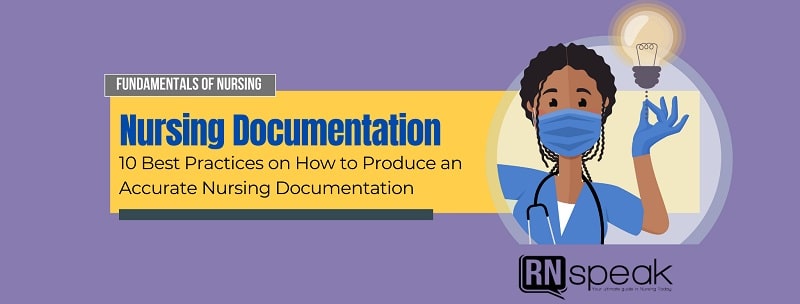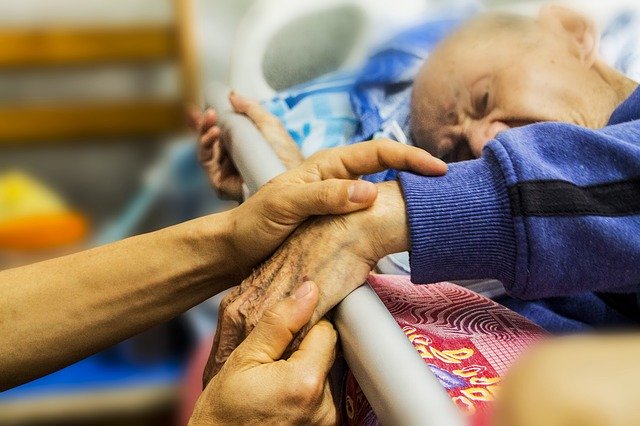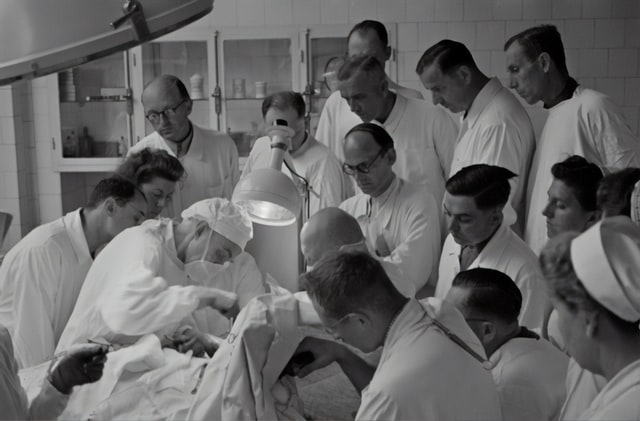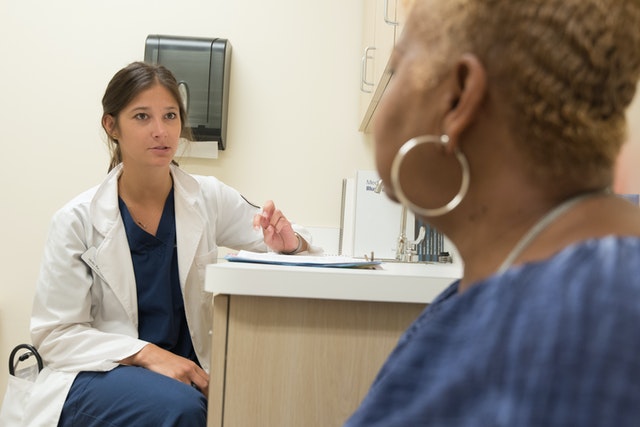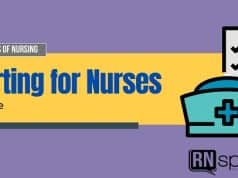Nursing documentation is one of the most painstaking activities on our everyday shift. It is no question that most of us nurses if not all, are having a hard time keeping up with the number of forms that we have to fill out on every patient during our shift.
There’s the drug charts, the NCPs, the nurse’s notes, the doctor’s orders we carry out, endorsement book, and all other types of forms there is to a patient’s chart. There is no question that keeping up with all these documentations will take a toll on us nurses and will make us vulnerable to errors. And don’t even start with the errors, along those are forms like the incident reports we have to file. Hence, it’s safe to say, there is no escape when it comes to nursing documentation. But there’s a reason why it is what it is. There is a saying for us health care workers that “what’s not documented is not done”, meaning when something bad happens to the patient, the patient file can be used as a legal document that a patient can use to defend the case.
The problem is, in reality, if you give a nurse 10 patients to handle, you would not expect that nurse to be able to properly and accurately document every single action that he/she will execute to every patient that is assigned to that particular nurse. But we can’t have everything, can we? It’s already known that it’s almost impossible to have a proper nurse: patient ratio. Understaffing is not new to us nurses but it doesn’t mean that it has no effects on how we perform our tasks.
It’s the reason why western countries like the USA or UK, along with other countries in the Middle East like UAE and KSA are investing in hiring more nurses because they understand the implications that may cause their hospitals if it will function under inappropriate nurse: patient ratio. I should say that in an ideal environment, complete and accurate nursing documentation will be attainable but we will also include the situation of other nurses out there who are underhanded – the understaffed, and the over-worked.
For example, in the Philippines, especially in government hospitals. Different measures have been done to fix this patient ceiling problem but admittedly, these temporary fixes really won’t do both the staff and the patients any good. Unless the management and the government fix the problem directly, there will always be an inconsistency when it comes to documentation.
How will a nurse improve with regards to patient documentation?
Depending on where nurses work, nursing documentation will vary from what country, hospital advancements, and guidelines. But ultimately, we nurses must deal with what we have. With this, we have accumulated 10 best practices on how to produce accurate nursing documentation.
Nursing Documentation Best Practice
1. Proper Mindset
The most important thing that every health care worker must have before even going to work is the proper mindset. In our line of duty, we can’t afford to stay out of focus. Preparing for the shift ahead will give you the proper head start to tackle your day. Every nurse going to his/her shift is faced by countless problems, stress, and adversities that their patients bear. If we are not ready for this, we are already at a great loss. Read more about this in IKIGAI:The Answer To Your Nursing Career
2. Be mindful of the Consequences
Whenever urged not to document properly for whatever reasons you may have, think of the implications it may do to your patients. Think of the next nurse that you will give the endorsement to if there is something that is omitted and may be of harm to the patient’s well-being if administered. This will always keep you at the tip of your ethical responsibilities and will always knock on your conscience to tell you to do your best every time you are in your duty, no matter what situation you are in; no matter how toxic the shift is.
3. Patient’s life Depend on It
In every action we do or not do, it always puts the lives of the patients we take care of on a balance. Every doctor’s order, drug administration, IV insertions, and other procedures, we do it with a unified goal of making our patients recover from whatever illness they are suffering from. One of the grave consequences of improper documentation is putting the lives of our patients at great risk. Thus, we are extra careful when dealing with controlled meds, code meds, and other intricate procedures – we put extra effort into ensuring that everything is properly monitored and documented. But make no mistake, it is often the simple things that are left unsupervised that sometimes be the cause of death.
As simple as an undocumented change in the patient’s O2 levels that was then forgotten to be endorsed may lead to serious repercussions, a simple catheter that was not properly labeled may lead to infection or positioning that was undocumented that later turned into a pressure ulcer. These things are possible, just because we forgot to document and has caused a series of unfortunate events. Prevention is always better than cure.
4. Don’t Take it Lightly
So don’t take it lightly. Yes, it is a strenuous thing to do but it has to be done – and it must be done accurately. SMART remember? This is not just an acronym for our goal-setting, this is also a word that we should always remember when we document. We document SPECIFICALLY to reduce the time needed for writing. Omit all unnecessary things. Be mindful of MEASURABLE things, like the intake and output of the patient, the IV fluids of the patient, etc. Make sure that you have enough time to document all the things you have done during your shift, make it ACHIEVABLE. Never write anything that is not REALISTIC for it will lead you to your demise one day. Most importantly, do it in a TIMELY manner. Everything has its right moment during our shift. Always be mindful of time.
5. Know your Patients
Patients come and go, but that doesn’t mean we don’t have to know them well. Only by knowing the patient will we able to be effective when it comes to treating them. If we don’t have enough knowledge with our patients, we tend to miss key aspects that are crucial to their treatment regimen – hence, we make mistakes.
6. Concentrate During Endorsement
Take a good look at the patient’s surroundings; check the contraptions, the labels, the nametag, the bed, the linens, the gown. Check everything because once a nurse has accepted the endorsement, it means that all the things that might be wrong will be on the hands of the one who accepted the endorsement. Through endorsements, we are also informed about the important details of our patients. So listen very carefully, and don’t just rely on what is written in the endorsement sheet, always rely on your documentation – so document as well.
7. Have a Solid History
This is very vital to every nurse that wants to be the best when it comes to taking care of their patients. Always ask for the history of the patient. Caring for a patient without knowing history is like driving a car on a very dark road with no headlights. We might see what’s there on the areas that are near but we will never see what’s coming.
When we have a solid history of our patients we will be more capable of providing a better plan of care for them, we will be able to spot if there may be a foreseeable crisis if ever a certain medicine that is in the drug chart is continuously given to the patient, we would’ve then called the attention of the doctor to discuss these findings with him, he would’ve reviewed it and corrected it. The mistake would be prevented – by just simply knowing the history of your patients.
8. Interact with the Patient and the Family
Because the doctors may be very busy with the number of patients that they attend to, they might not extract all the valuable information needed to treat the patient. Hence, it’s always a good practice to communicate with your patients and their families, they might tell something vital that is related to the patient’s condition. And besides, remember that the first step to establishing a good relationship with your patients is to first establish rapport – it’s a fundamental nursing skill that we all should master.
9. The Power of the Jot-Down Notebook
When we were students, one of the paraphernalia that is being checked by our clinical instructors was the pocket notebook, along with all the things we put in our uniforms like the bandage scissors, ruler, thermometers, different types of pens, plaster, penlight, and the list goes on. When we were students, we were taught to always have these things during our shift, while we are making rounds, while we take care of our patients. They do so because they wanted that practice to be carried over when we become professionals. But sadly, we drift away from these practices when we become Registered Nurses. There is a reason why we need these things, especially the jot-down notebook.
Here’s why; during endorsement, a competent nurse should be writing down the key information of every patient received. When patients are already assigned, verify that information in the chart and triangulate the information you have for the assigned patient/s. By doing this, it will provide you with more established information you need to properly care for your patients. When you interact with your patients or their families, they might say something important out of the blue, write that down and see if it reflects in the chart. If you do not write things down, there is a high possibility of forgetting that information due to the number of patients you are taking care of. Thus, the jot-down notebook will be a life-saver for those bits of information that you will learn throughout your day. Make it a habit to always write things down.
10. The Bottomline, We are only Humans
At the end of the day, we are still only humans and we make mistakes. These are only precautions to minimize the potential errors because we health care workers couldn’t afford to have too many. Documentation is such an essential part of our profession. It shouldn’t be taken lightly regardless of how toxic we are or how many patients we have. It is our duty to make sure that we give our very best for these patients because that’s our sworn obligation and they are our responsibility. Under our hands do they root for hopes of getting better. Yes, it is such an enormous obligation to uphold but that’s what it means to be a hero, an angel in the sickroom.


